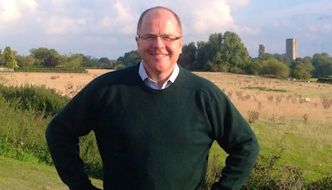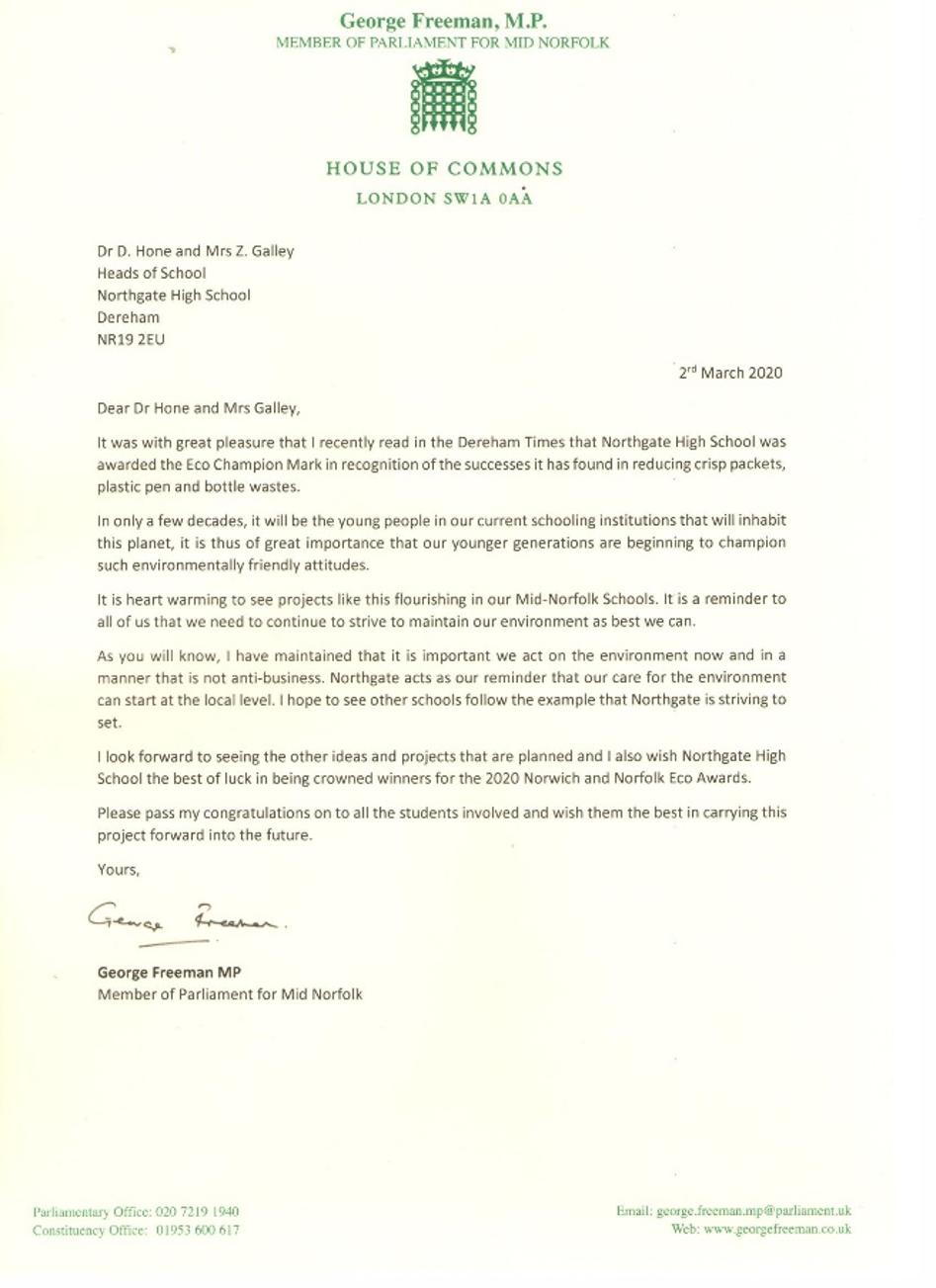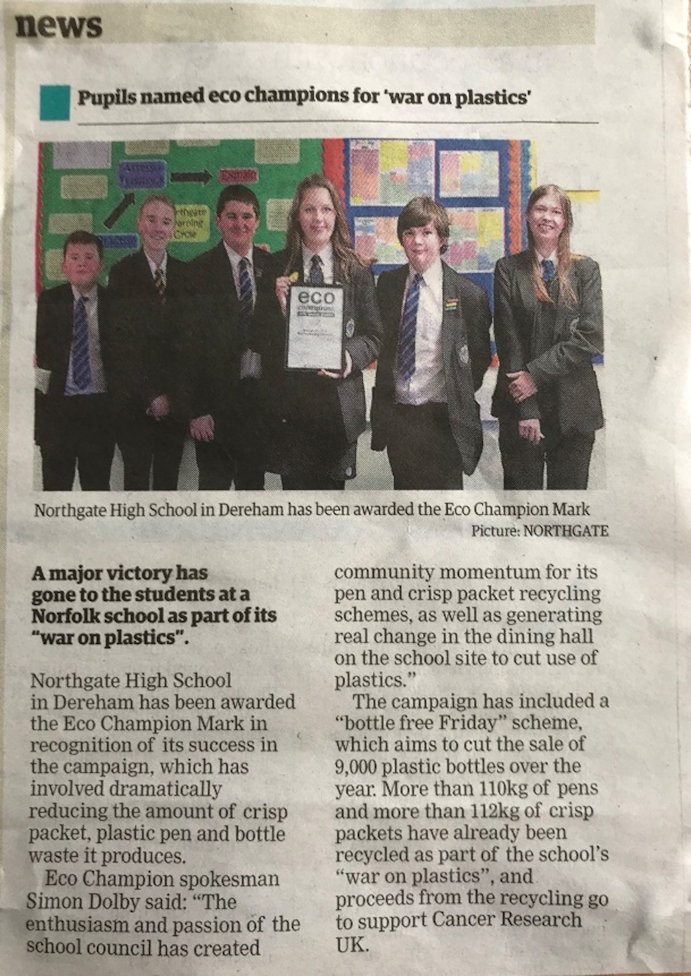Following the statement by the Chancellor of the Exchequer, George Freeman calls on the Government to reinforce the insurance industry which has the wherewithal to deliver support to small businesses and local employers.

George Freeman (Mid Norfolk) (Con)
I congratulate and thank the Chancellor on behalf of the people in Mid Norfolk for a coherent and comprehensive package, in particular the support on rates and mortgages. In my rural and quite fragile economy, it is the pubs, the high streets, the small businesses, tourism and farming, and food processing that are the backbone of the economy. May I press him on the insurance point? The policies of many of my local employers simply do not cover liability for epidemics. Would it not be sensible to look at reinforcing the insurance industry, which has the wherewithal to deliver the support, so that those that have made money in the good years can help companies that really need it in tough times?
Rishi Sunak
I appreciate the point my hon. Friend is making. The steps today on insurance are welcome, but he is right to identify that retrospectively changing the situation that insurers would have reserved against could have a very significant impact on their solvency, which would send a ripple effect throughout the insurance market. That is not something that any of us would want to see.

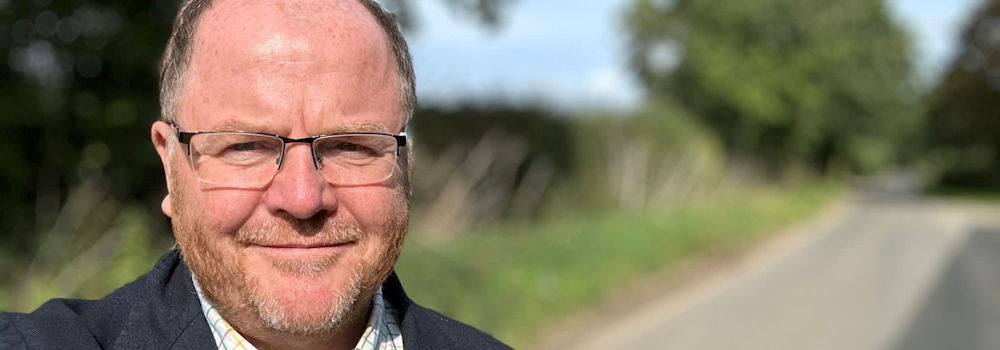
That’s why I...
- Launched Mind The Gap! in 2003
- Launched PositivePolitics! in 2004
- Launched The Norfolk Way in 2007
- And why I continue to drive forward my ongoing campaign for a major government effort to modernise our infrastructure and better spread opportunity – here in the East and nationwide.
This region – and this country – is home to some of the most exciting sectors of fast growing economic innovation in the world, creating new companies, clusters and careers for a new generation, and the science and technology that underpins them.
But:
- Poor infrastructure and connectivity means that areas like Mid Norfolk –in fact much of rural and coastal East Anglia – only 50miles or so from Cambridge – sees very little benefit.
- This means continuing pockets of deprivation and poverty which with better access to jobs and investment would disappear.
- And it means that the overall growth potential (and therefore tax receipts for public services) of our country and region is held back.
This is bonkers.
Having had a career helping found and finance high growth companies in that space – particularly in Biotechnology, MedTech, Agritech and Cleantech – I can see huge opportunities for our area and our country if we can invest in good research, help commercialise it properly and build a more innovative economy better connected to the fastest emerging global export markets.
These high growth sectors – which Norfolk and East Anglia is especially strong in – create jobs and opportunities for everyone – not just “boffins”.
That’s why I have campaigned consistently over the last decade for successive Governments to commit to major investment in these areas.
To see how I am working to deliver on this mission, please do visit some of the other campaign pages on this website and regularly follow my new web-stories, highlighting the work I do on a daily basis both in Westminster and here in Mid Norfolk.
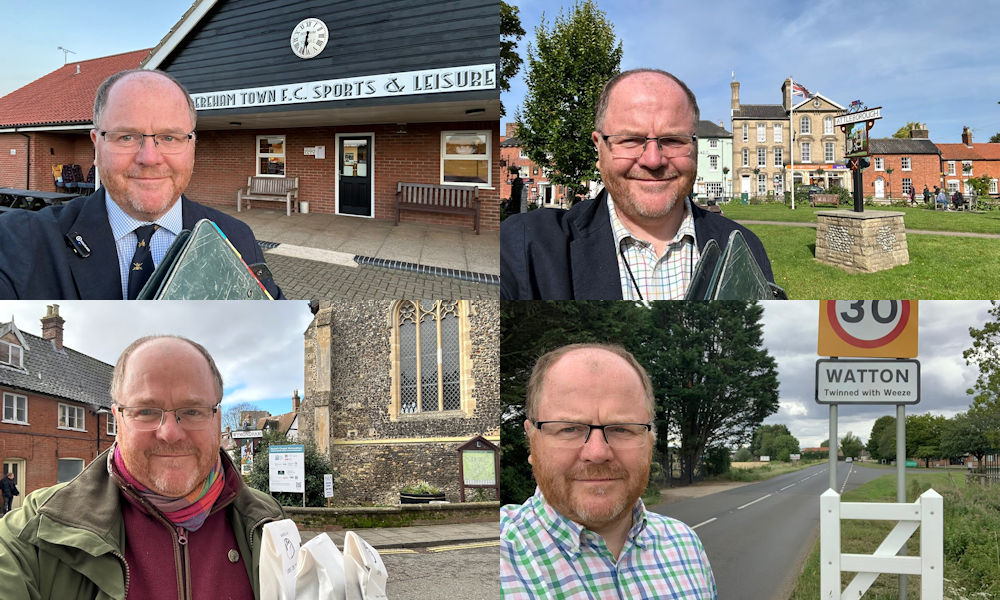


George Freeman welcomes the budget as a budget for post-Brexit renewal and regeneration across the country and calls for a regeneration delivery policy to ensure that the investment can be accessed where it is most needed.
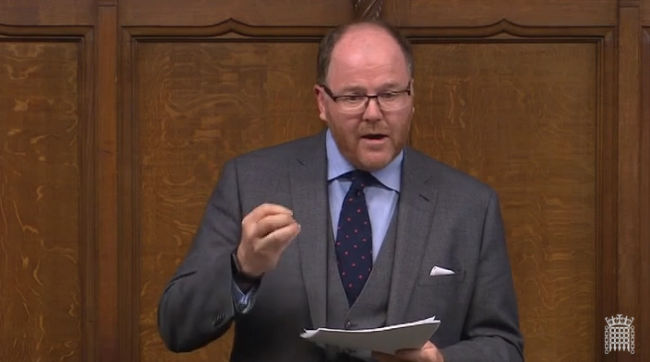
George Freeman (Mid Norfolk) (Con)
It is a pleasure to follow the right hon. Member for Kingston and Surbiton (Sir Edward Davey). I have happy memories of being in government with him in the coalition Government 10 years ago. It is also a pleasure to speak from the Back Benches for the first time since the reshuffle.
I congratulate colleagues from both sides of the House on some outstanding maiden speeches and our new Chancellor on a dazzling debut. He takes office at a time of immense challenge: flooding here in the UK; the challenge of decarbonisation; coronavirus; a global economic slowdown; and a massive challenge of delivering the promise, and now expectation, of levelling up by so many communities across the country. I warmly welcome his announcements today, in particular his genuinely historic commitment to a once-in-a-generation science, innovation and infrastructure revolution to drive connectivity of opportunity for levelling up.
It is on that last theme that I want to concentrate this afternoon. I have argued for a decade that the challenge of renewal and regeneration is the key to a sustainable post-crash economics that is genuinely sustainable: investing in a more resilient economic model; better spreading opportunity out from the city; and tackling the deep grievances incubated through a decade of deepening public disillusionment, back to Iraq through expenses, the banking crash, the inevitable decade of austerity, globalisation, and the process itself of the EU referendum. As I have often argued elsewhere, in my constituency and in much of the country the rise of UKIP and the 2016 referendum result was as much a roar against domestic grievances of disconnection as it was about the obvious inadequacies of the EU. We have to make this a bold moment of economic, democratic, social and cultural renewal.
This belief in renewal and regeneration is not a new crusade for me; it has been the defining mission and idea at the heart of my career—indeed, my life. I believe there is no more noble mission—whether as an individual suffering a life collapse, as my late father did, as a child from a broken home, or as a family, community, charity, company or country—than to defy the challenges you face and win against the odds. It is the stuff of life. It is what drew me into a career in the exciting world of high-growth technology companies and venture finance: the chance to have a dream with a small team, raise some money and make a profound difference.
That belief that we can, in this place, make a difference runs through the heart of the best of our democracy. It is why, after the Iraq crisis of trust, I started Mind the Gap! and Positive Politics. It is why, post crash, I led the calls in the coalition for an active industrial strategy for life science, for agri-tech, for cleantech to grow the exciting sectors of our economy with the biggest global potential. It is why after the EU referendum I was clear, as a noisy former remainer, that I was absolutely committed, as we must be, to delivering Brexit as a moment of inspiring national renewal that could work for those, however they voted in that referendum. That is why I spent the past three years setting up the big tent to capitalise on a wider conversation with people beyond Westminster, especially the next generation, to produce a vision for Britain beyond Brexit with 45 fellow MPs in our 2020 Conservative group—I am delighted to be flanked by three contributors to it—convening the one nation caucus and insisting that the Conservative party needs to discover the one nation tradition that runs through our core. It is why I campaigned for, and continue to support, the Prime Minister in his electrifying crusade to shake up the failing silos, quangos and Whitehall structures, catalyse a new energy, and deliver for the people and places that have been left behind by globalisation and so much of modern economic growth. It is why I was relishing helping to shake up the Department for Transport to better adapt to the challenges of decarbonisation, digitalisation and disconnection.
I deeply believe that if we get this right, we can make Brexit a genuinely inspiring and transformational moment of national renewal, defining ourselves not as the service economy of the European Union, but as a global science and innovation superpower, exploiting our freedoms outside the restrictive EU regulations—which I described in the “Fresh Start” report five years ago—as a global hub of technology leadership in the exciting fields of life science and agritech, where we have the ability to develop transformational technologies such as the blight-resistant potato and the drought-resistant wheats for sustainably feeding, fuelling and healing the developing world. We can use a new aid, trade and security alignment to better export our technology to the fastest-emerging markets. Here at home we can embrace bold new devolution deals, unlocking new leadership and new models of city and personal financing of innovation. New northern powerhouses and eastern engines can unleash economic growth and renewal, one regional economy at a time, creating new opportunities for the people and places that have been left behind. It could be genuinely inspiring, taking back control to give opportunity to the British people the Conservative way, with Brexit as a moment that we deliver the promises of the referendum and tackle the grievances that so many people who voted the other way feared would be ignored.
Given all that, and the fact that I had just announced some major funding for cycling, it was a bit of a surprise to find myself on my bike back to the Back Benches, as part of a No. 10 masterplan for Treasury, science and transport infrastructure. But Ministers come and go—it is a tough business and a team sport—and I am not here to complain. I absolutely agree with the idea of using the commanding heights of Treasury, science and infrastructure to deliver the levelling-up agenda. Projects from No. 10 can make a difference and get things done. I was involved in one when we launched the 100,000 Genomes Project—a small group of us did it and it worked. I totally understand the instinct and mandate to take the election result as a moment of bold reform.
The truth is that across Whitehall our Government are struggling to keep up with the pace of technology and digitalisation, personalisation and accountability, and voter exhaustion with bureaucracy. We will never unlock a genuine innovation economy without real reform, but we need policies that are on a scale of, but very different from, the reforms of the 1980s—the right to buy, the privatisation of failing nationalised industries, the big bang and the enterprise revolution. We need big policies that deliver big change.
As history shows, we have a woeful record in this country of delivering successful infrastructure. The UK is already massively over-centralised. The Brexit vote showed that people have had enough of London bureaucracies taking control. Local and regional economies dying through marginalisation will not be revived by an all-mighty No. 10 Brexit bunker issuing diktats. Taking back control must mean by and for them—the people we are here to serve—not Whitehall. Real regeneration and empowerment comes from the empowerment of devolution to people and places.
If we are serious about the real and lasting regeneration of places left behind, we have to take some tough decisions now about how we are going to do it and learn the lessons of what has, and has not, worked in the past—why we have failed so spectacularly with projects such as Crossrail and the west coast main line, and even worse, locally, why cities such as Cambridge, Europe’s fastest-growing city region, is still running on 19th-century infrastructure. I warmly welcome the Chancellor’s announcement on Cambridge South station today. We need to learn from what has worked, such as the London Docklands, Liverpool, the County Durham development corporation and the Olympic park.
I pay tribute to a former Member of the House who has not only written the book but done a lot of the business on this, Michael Heseltine—that lion of regeneration. No one has done more on this than he, and I commend to those who have not read it his 2012 report “No Stone Unturned”. It is essential reading for all new MPs or special advisers.
The key lesson is that without real, investable, locally led, non-partisan engines of leadership and investment, this will not work. I am absolutely delighted and proud that we have invested £5 billion for towns, £5 billion for buses, £5 billion for stations and £5 billion for high streets—£5 billion seems to be the new chip in the Treasury strip. I warmly welcome the Chancellor’s announcement today of a £100 billion infrastructure revolution, but how is all this money going to be spent? What are the engines of renewal and regeneration that we are going to set up to be able to access that money, pull in private money and unlock local leadership? We should do that in the north, but let us not forget the coastal towns and the marginalised rural towns. How are those places, which have been left behind, going to access that money and make a difference? How does a town such as Grimsby, which has set out a brilliant strategy and has put together a little partnership board, going to access the money to do the local brownfield development, the transport links and the sustainable growth?
That applies equally to Stoke, Sunderland, Burnley, Bradford, Bassetlaw, Peterhead, Preston, Penzance. Around the country, we have promised these small cities and big towns that we will renew and regenerate. We have to have an answer to the question: how? The same is true for towns such as Watton, in my constituency, left behind even in its own county, left behind by its own local enterprise partnership, on the edge of nowhere, on the road to nowhere, but waiting, excited by this prospect. But who will make this money work for Watton ? We need a regeneration delivery policy to deliver this bold renewal: railway development companies, freeport enterprise corporations, regional infrastructure bonds. Around the country, we have to create the engines that can fund, invest and lead these projects and so drive regeneration.
Some leave Government to spend more time Parliament. Tony Benn famously said he was leaving Government to spend more time doing politics. I am leaving Government to do more of this work—to work around the country, in East Anglia and elsewhere, to help put together private-public partnerships to drive this regeneration. I am 100% committed to it, and I look forward to helping the Government make a success of this crucial mission.
Civility in Politics Awards
Civility in Politics, anyone?
It is a great honour to have been nominated for the Civility In Politics Bridge Builders of the year award alongside my Big Tent Ideas Festival co-Chair, Baroness Sally Morgan.
Strong democracy requires openness to differing views!
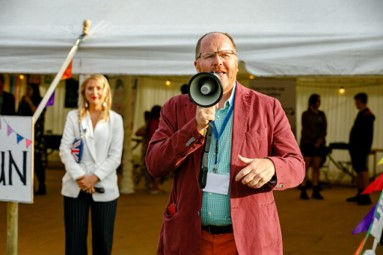
reading about how Northgate High School has just been awarded the Eco Champion Mark. The school has recently been championing new policies to reduce the amount of plastic waste it produces in attempts to preserve our environment.
It is crucial we tackle our climate change emergency now and in a manner that is not anti-business in nature. For me, it was great to see that Northgate High School are showing that we can tackle this crisis from a small, local level first and foremost.
I have sent off a letter to the school congratulating them on the award and praising the ongoing work of the school and students involved.
You can read more about the schools project on their website here: https://www.northgate.norfolk.sch.uk/northgate-earns-eco-champion-status/
